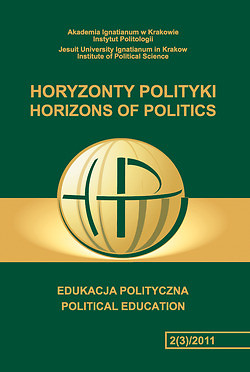Kontenplacja i uniwersytet. Refleksje nad liberalnym kształceniem w epoce praktyki
Contemplation and the University: Reflections on Liberal Education in the Age of Practice
Author(s): Till KinzelSubject(s): Politics / Political Sciences
Published by: Uniwersytet Ignatianum w Krakowie
Keywords: Philosophy; University; contemplation; practice; competence; Socrates; Allan Bloom
Summary/Abstract: The article deals with the change that has occurred in the field of university education. The old notion of „contemplation” was thus thoroughly neglected, or „theory” reduced to „practice”, in order to redeem the claims of modern „technological” society. This society is built on the „imperatives of making and doing”. There is almost no learning for its own sake nowadays and we can find a fatal indifference to the real „message” of „the matters”, as distinguished from the „media” or „communicative competence”, as well. The humanities, however, should not be permeated by these currents; it should offer, instead, some alternative approach to education. Such approach may be linked with reflection on the figure of Socrates, who is not only a „historical philosopher”, but „a model for conemplation”. He was wholly immersed in the „practice of contemplation” yet he never forgot „the question of morality and politics”. We are not expected to take after historical Socrates; what we should do is to learn from his fate, as Allan Bloom used to do, what love or truth in reality means; we should actualize „Socratic impulse” while not imitating Socrates himself. We must be aware that the great philosophers would not probably be welcome in the realm of the „hypermodern bureaucratized university”; we do, nonetheless, have to reflect on their examples. This is primarily because contemplation leads to happiness. If there is no place for happiness, or reflecting upon happiness, as the ultimate goal of human life, at the university, the fundamental aim of education is decidedly diminished. But contemplation has also its political dimension and ought to be considered in regard to its „important educational function”, namely, teaching philosophy. After all, university professors are citizens, too. And political philosophy, if properly understood, shows the right distance but discourages men from „complete withdrawal from political action”. Contemplation can be seen as „an indicator of political and cultural freedom”. It should be present as a counterbalance of economic and political claims dominating our society.
Journal: Horyzonty Polityki
- Issue Year: 2/2011
- Issue No: 03
- Page Range: 31-40
- Page Count: 10
- Language: English

